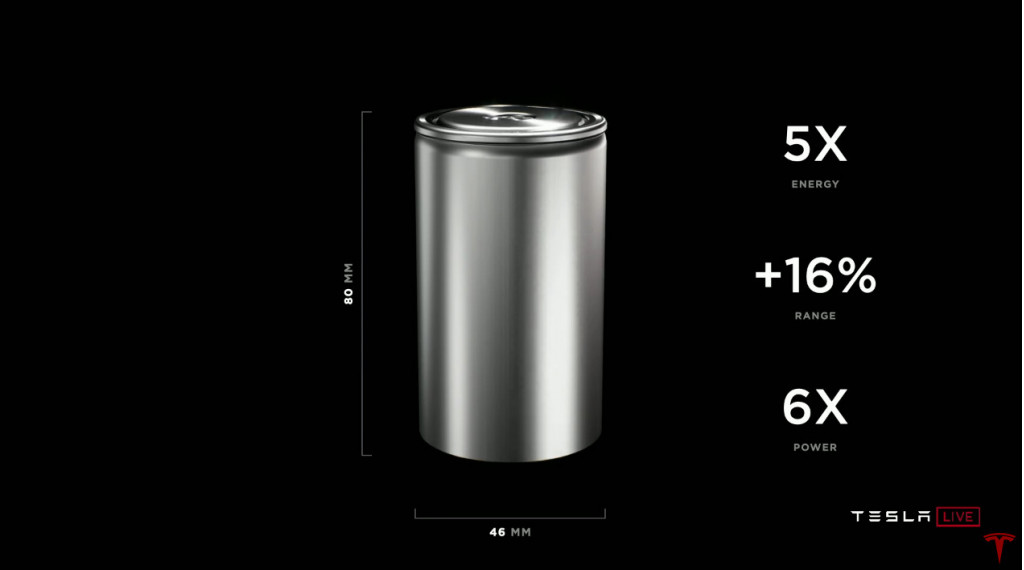In a rare interview, Panasonic's EV battery boss provided a glimpse of the company's response to the larger battery cells promoted by client Tesla. Speaking to Bloomberg, Yasuaki Takamoto said bigger cells are the key to affordable electric cars, but indicated he's not convinced by Tesla's proposed cell format.
Tesla presented its 4680-format cylindrical cell as its future during its Battery Day last year, but it hadn't then produced any significant volume of them. Musk presented it as potentially halving cell cost over time.

Future Tesla cell will make energy, power gains
At the time, Tesla said the format—46 millimeters wide by 80 millimeters long—was the sweet spot, allowing for cost reductions without issues with high-speed charging and thermal management observed with larger cells. For comparison, the Panasonic-supplied cells in the Model 3 and Model Y are 2170-format—21 millimeters wide by 70 millimeters long.
In the interview, Takamoto said larger cells would enable truly affordable EVs because fewer would be needed to power a car, saving on manufacturing costs. However, he still seemed somewhat skeptical of the larger format.
The bigger cells would also be harder to produce, are prone to overheating, and are more susceptible to particle contamination, Takamoto said. That's a frequent cause of battery fires, which occur when small pieces of metal work their way into a cell and cause it to short circuit, he said.
While those comments make it difficult to tell whether Panasonic sees the 4680 format as worthwhile, rival battery supplier LG Chem may be ready to jump on that bandwagon. A March report said the South Korean company is planning to help Tesla produce the large-format cells beginning in 2023, possibly at a United States factory.
Come work on cell / battery production at Giga Texas & Giga Berlin! https://t.co/PhsI5bb0uD pic.twitter.com/jEUatMLDmE
— Tesla (@Tesla) January 17, 2021
Some of Tesla's upcoming vehicles will likely depend on the bigger cells. In October, CEO Elon Musk said that the ramp-up of the Semi depends on how rapidly they can ramp up production of the new cells. They might also be important for the Cybertruck.
Tesla is planning to ramp up production of the new cells beyond their current pilot line in California—eventually to its Texas factory, and perhaps to Germany. In January, the company advertised battery-production jobs at both sites on Twitter.












